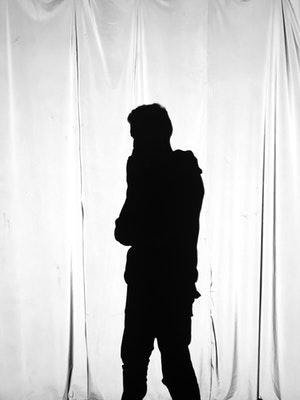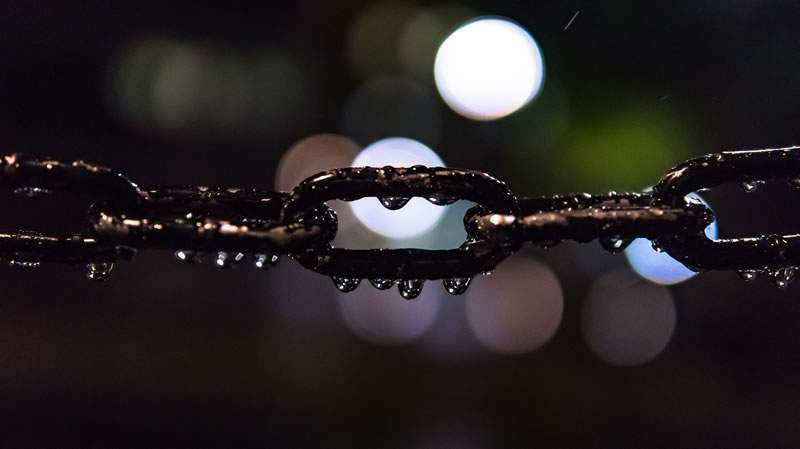Freedom from Bondage is Readily Available
I’ve always been fascinated by the Stockholm Syndrome – the behavior where hostages become sympathetic to their captors. Some resist rescue, refuse to testify against their assailants, or in rare cases like Patty Hearst, become an accomplice to their captors’ crimes.
Standing on the outside looking in, most of us couldn’t fathom being sympathetic to those who imprison us, mistreat us, abuse us, or threaten our very life. Just the thought of being captured or imprisoned arouses feelings of revolt, fighting back, or strategizing what we would do to regain our freedom.
It’s interesting how we have a plan for and reject the captors we CAN see. But what about those hidden captors we can’t physically see, but we know oh so well?
Interestingly, many Christians wake up as willing hostages every day. We are captured by fear, failure, low self-esteem, doubt, the past, and controlled by many other “wardens”. We wouldn’t pat our kidnapper on the back, or assist a bank robbery in progress, would we? Then, why don’t we have the same intense resistance against, say, blame, or unforgiveness captors as we would physical captors?
Could it be we’re suffering from an internal Stockholm Syndrome?
The Devil is not Your Friend
 The first thing to note, Team, is that the devil is not your friend (1 Peter 5:8). He is an enemy, and his tricks, schemes, and tactics are never meant for your good.
The first thing to note, Team, is that the devil is not your friend (1 Peter 5:8). He is an enemy, and his tricks, schemes, and tactics are never meant for your good.
Jesus paid the high price of His life so that we could be free and stay free.
Did you know that bondage takes a certain level of submission to it? Galatians 5:1 admonishes us to keep ourselves from being “entangled” in the yoke of bondage. If we have the power through Jesus Christ to be free and stay free, why are so many blood-bought believers bound?
Here are some reasons why we forego freedom and remain in bondage.
The (Fake) Tears We Cry for Our Chains, And Why
1. “It’s what I know, and how I’ve lived for so long.” (Length of time served)
The “familiar” takes zero effort, and frankly, many of us are sadly allergic to work. We’ve been there, know that, lived that – why change? “My mama was this, my daddy was this, his daddy… it’s who we are.” False!
No matter how long you’ve been the way you are today, freedom through Jesus Christ is attainable for a better way of life. Afraid you’ll never “get it”? Just like you learned and adapted to being surly, malicious, a control freak, or whoever your current Warden is, God’s plan for you includes healing and washing away the stench of your prison, and teaching you to walk, with Love, into your freedom.
2. “I love my Attention, Pity, and Blame (AP&B) Card.” (Prison benefits)
“So, you’re telling me, if I walk into my freedom, I’ll no longer receive all of this attention and pity, and I can’t blame others for my misfortunes anymore?”
That’s right! Now, how many of you reading this would rush back into your cell and slam the door shut? How many of you value your AP&B card over a get-out-of-jail-free card? Team, God will never leave you worse off for choosing freedom. What you thought you would lose is actually the greatest gain of all.
3. “If it were easier, I’d change.” (Rikers vs. County Jail)
I agree. There are levels of suffering, misfortune, and hardships that warrant greater rescue tactics, greater healing, or more time to realize freedom than others. You may think fear is worse than unforgiveness, or pride is worse than lying. But it serves us more to focus our attention on the power of the Holy Spirit than to compare and magnify all of our logical reasons why we can’t be free.
Is there anything too hard for our God, the Creator of the Universe (Jeremiah 32:27)? No, there isn’t! Just ask Elie Wiesel, Chong Kim, your family member, or a friend who’s beat unthinkable odds. You can be free, too.
4. “I like prison.”
Perhaps your stance is: “Leave me alone. I like me this way, this is MY truth.” To you, beloved, I offer – you will never like your prison more than God LOVES you! I pray that God sends you an event or someone who shares freedom through Christ in a way that’s real and meaningful to you. You, too, have a date where every chain will be broken!
So, What’s the Play Call?
Don’t cry for your chains. You may know them, you may have grown fond of them, perhaps you’ve even bedazzled them – but know this: There is no such thing as a beautiful prison.
Did Jesus sacrifice His life so that His Team would live in defeat and bondage? God forbid!
Team Jesus is a winning team of Christ-followers who are more than conquerors. Let’s begin to ACT LIKE WE ARE!
Got an appetite for the drama and attention that bondage brings? Ask God to search your heart and lead you to the living waters of Christ, where your mind can be washed and renewed, and the promise of freedom from bondage realized.




